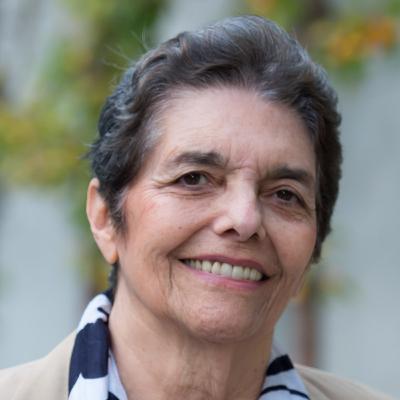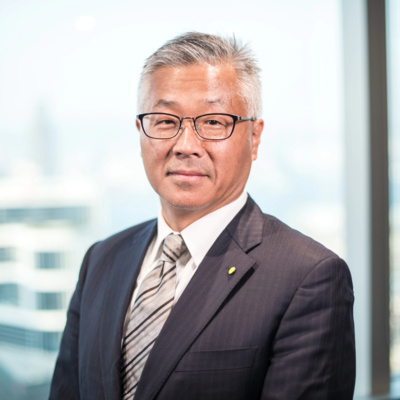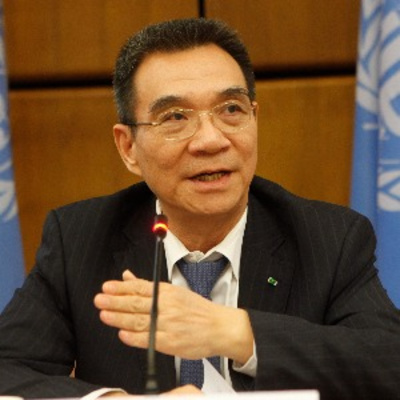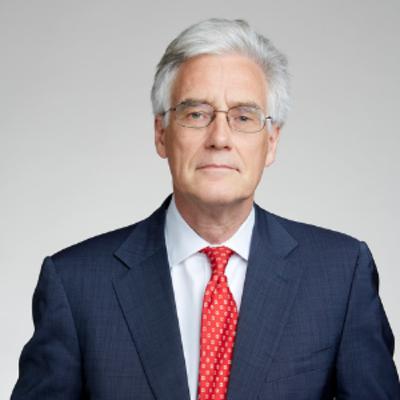Discover The Beverage Report Podcast
The Beverage Report Podcast

The Beverage Report Podcast
Author: LSE Department of Economics
Subscribed: 3Played: 59Subscribe
Share
© LSE Department of Economics
Description
This year Jacinta Feng and Urvi Gaur (third year Economics students) are leading a team of nine students who share the same goal and passion - bringing forward intellectually-stimulating conversations with economists from the top of their fields, from within LSE and beyond.
What sets The Beverage Report apart? Dive into discussions with economists at the frontier of research worldwide, exploring their research, gaining insights, and walking alongside them on their unique academic journeys. Tune in now to elevate your understanding of economics with firsthand wisdom from the best in the game!
What sets The Beverage Report apart? Dive into discussions with economists at the frontier of research worldwide, exploring their research, gaining insights, and walking alongside them on their unique academic journeys. Tune in now to elevate your understanding of economics with firsthand wisdom from the best in the game!
64 Episodes
Reverse
In this episode of the Beverage Report Podcast, we interview a leading philosopher and economist, Prof. Erik Angner. How does a philosophy and economics background shape perspective? Is it important for everyone to be made aware of basic economics to deal with the world's problems? How can we interpret happiness and the data that comes with it?Throughout the discussion Prof. Erik Angner explores the complexity beyond economic models, rather acknowledging the importance of economic intuition. Tune in to this interesting episode that reveals the deep interconnectedness between human behaviour and economics.
In this episode of the Beverage Report Podcast, we interview a leading economic researcher and advisor, Dr Gopi Shah Goda. Are insurance markets are inherently persistently inefficient? How can governments adapt policies to accommodate an ageing population? Are we still experiencing persistent reductions in labour supply due to COVID-19?
Throughout the discussion Dr Goda references her extensive career including her year serving as a senior economist at the White House Council of Economic Advisers and her papers as a research associate at the National Bureau of Economic Research.
Tune in to this exciting episode that reflects upon US economic policies surrounding health and an ageing population.
In this episode of the Beverage Report Podcast, we interview Professor Camille Landais, Professor of Economics & Director of STICERD at the LSE.
What is the child penalty and how come even countries at similar levels of development, such as Scandinavian and German-speaking countries, demonstrate large variations? Why is inheritance taxation an unpopular concept, and how could the current system be reformed? What are the benefits and potential drawbacks of short-term work compared to unemployment insurance schemes?
Professor Landais answers these questions and more, explaining the context and rationale behind his research, as well as the applicability of the results. Drawing on his expertise, Professor Landais shares his insights and carefully weighs up potential benefits and disadvantages of certain policies, allowing listeners to draw informed conclusions.
Tune into this episode to learn more about Professor Landais' research and his personal journey as an economist.
*Special thanks for this episode goes out to Dave, the wider Beverage Report Podcast team & the Department of Economics at the LSE.
In this episode of the Beverage Report Podcast, we interview Professor David Luke, Professor in Practice and Strategic Director at the Firoz Lalji Institute for Africa at the LSE.
How does the AfCFTA change the current trade regimes in place in Africa? Is rapid growth we have seen in sub-Saharan Africa in recent decades indeed not sustainable due to "poor prospects for industrialisation"? How can Africa best prepare itself for the EU's CBAM legislation?
Professor Luke answers these questions and more, drawing on his immense expertise marrying theory and practice in the field of trade policy and negotiations, as well as development in Africa. Describing his expansive career, Professor Luke divulges how current students and young professionals seeking to go into similar areas of work can do so, and what to look out for while laying the foundations for such a career.
Tune into this episode to learn more about Professor Luke's research and his personal journey as an economist!
*Special thanks for this episode goes out to Dave, the wider Beverage Report Podcast team & the Department of Economics at the LSE.
In this episode of the Beverage Report Podcast, we interview Professor Keyu Jin, Associate Professor of Economics at the LSE Department of Economics & author of the new book 'The New China Playbook: Beyond Socialism and Capitalism'.
What are the West's biggest misconceptions about China? How has the one-child policy impacted policy regulations and aggregate household savings? What insights can we glean from the collapse of SVB?
Professor Jin explores these topics and more, sharing her insights and work on some of the most important and impactful current areas of research: the Chinese economy, international trade & finance.
Tune into this episode to learn more about Professor Jin's research and her personal journey as an economist!
In this episode of the Beverage Report Podcast, we interview Baroness Dambisa Moyo, a member of the House of Lords serving on a number of corporate boards, with a PhD in Economics from the University of Oxford, and a Master's degree from Harvard University!
How might geopolitical instability mould the landscape of investment opportunities? In what ways might AI impact growth and human development? Which sectors are the most vulnerable to the need to refinance maturing corporate debt as interest rates remain high?
Lady Moyo shares her insights and outlook on some of the most important current trends globally, including inflation, interest rates, geopolitics, climate change, AI and more. With an illustrious and expansive career, Lady Moyo also discusses key lessons she has gained from her experiences, and imparts wisdom for those interested in a career in economics and politics.
Tune into this special episode to learn more about Baroness Dambisa Moyo's academic and professional journey.
In this episode of the Beverage Report, Raza Rasool discusses the 4-day workweek, consumerism, and sustainability with Prof. Juliet Schor. We explore the success of the 4-day work week pilot in the UK, its implications, and potential barriers to implementation. As well as, exploring the impact of global crises on consumer behavior and transitioning to greater sustainability.
Juliet Schor is an economist and sociologist at Boston College. Schor’s research focuses on work, consumption, and climate change. A graduate of Wesleyan University, Schor received her Ph.D. in economics at the University of Massachusetts. Before joining Boston College, she taught at Harvard University for 17 years, in the Department of Economics and the Committee on Degrees in Women's Studies. Schor's most recent project is researching trials of companies who are implementing four day workweeks. Schor’s previous books include the national best-seller The Overspent American.
In this episode, Rida Samreen explores Dr Ng Kok Hoe’s research with the National University of Singapore. They discuss his landmark nationwide street count in 2019, its success in bringing homelessness to public discourse in Singapore, and the minimum income standard debate.
Dr Ng Kok-Hoe is a Senior Research Fellow and Head of the Case Study Unit in the School of Public Policy at the National University of Singapore. He also leads the Social Inclusion Project, a research programme dedicated to analysing the role of public policies in creating opportunities for participation. His research is mainly concerned with income security, minimum income standards, social housing policy and homelessness.
In our third episode, Raza Rasool takes a deep dive into the state of the technological revolution and its impact on the environment with Carlota Perez, the author of “Technological Revolutions and Financial Capital”. They discuss the theory of technological revolutions, the current state of the technological cycle, the role of government in technology, Universal Basic Income and the future of a green golden age.
Carlota Perez is a British-Venezuelan researcher, lecturer and international consultant. She studies the mutual shaping of technical change and society and the lessons provided by the history of technological revolutions for economic growth and development.
In our second episode, Rida Samreen takes a deep dive into the Chinese economy and its global relations with Mr Sitao Xu, the Chief Economist at Deloitte China. They discuss recent protests over the double-edged zero Covid policy, the real estate crisis and its global implications, the future outlook of the Belt and Road Initiative, and the escalating US-China trade war.
Sitao Xu is the Chief Economist and Partner of Deloitte China, spearheading Deloitte's economic and industry research. Prior to Deloitte, he was Chief Representative of China and EIU forecasting director at the Economist Group from 2004 to 2014.
In this episode, Raza Rasool explores Dr Jena's unique career path, and the insights it lends him on salient issues such as the gender pay gap in medicine, physician burnout, and the overturning of Roe v Wade.
Dr Bapu Jena, PhD, is the Joseph P. Newhouse Professor of Health Care Policy at Harvard Medical School and a physician in the Department of Medicine at Massachusetts General Hospital. As an economist and physician, Dr. Jena’s research involves several areas of health economics and policy including the use of natural experiments in health care, the economics of physician behavior and the physician workforce, medical malpractice, the economics of health care productivity, and the economics of medical innovation. He is the host of the Freakonomics, MD podcast, which explores the “hidden side of health care.”
In this Beverage Report episode, Sarah speaks with Dr Rachel Ngai from the Department of Economics at LSE. She explains Africa’s structural transformation and how African women’s time allocation in home production and market jobs has changed over time. She also talks about the Hukou System in China.
Edward Ludwig Glaeser is an American economist and Fred and Eleanor Glimp Professor of Economics at Harvard University. He is also Director for the Cities Research Programme at the International Growth Centre.
In this Beverage Report episode, Sarah Wang speaks with Professor Edward Glaeser from Harvard University on urban economics and how the role of cities evolved over time.
In this Beverage Report episode, Sarah Wang, the new host, speaks with LSE alumnus Dr Flavio Toxvaerd from Cambridge University on economic epidemiology.
Matthew Bradbury sits down to discuss with Professor Justin Yifu Lin his work as Chief Economist at the World Bank, the reform and opening up of China and what the objectives should be of development policy going forwards.
Beverage Report speaks to Professor Janet Hunter about economic history as a discipline, Japanese history, and the effects of COVID-19 on Japan.
Beverage Report speaks to Dr Swati Dhingra about COVID-19 in India, the pandemic’s effect on globalisation, and the updated economic effects of Brexit.
Beverage Report speaks to Danny Quah about the economic modelling of international relations, COVID-19 in Southeast Asia, and the post-pandemic world.
Podcast host Matthew Bradbury speaks to Melissa Dell about the economics of institutions, and what economists can learn from other disciplines.
In part 2 Matthew speaks to Lord Adair Turner about his work as former Chairman of the Committee on Climate Change and his current role as Chairman of the Energy Transitions Commission.


















